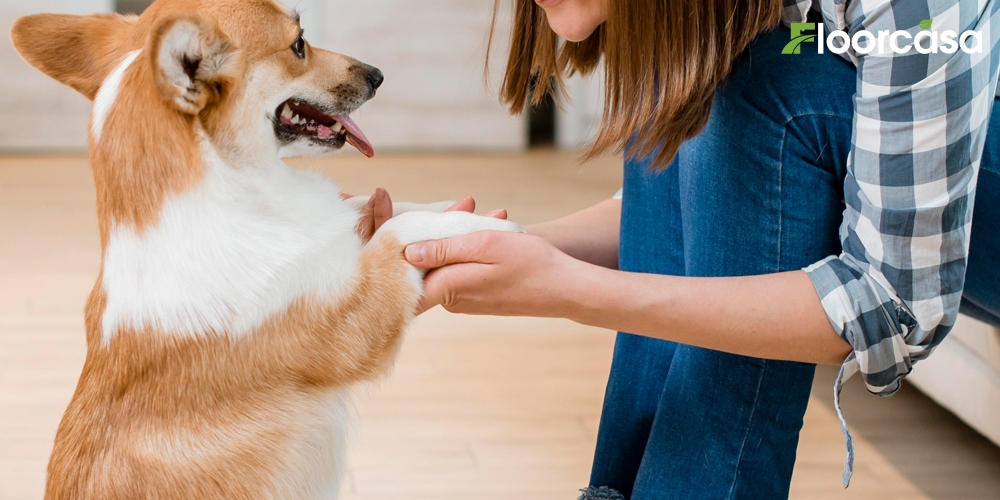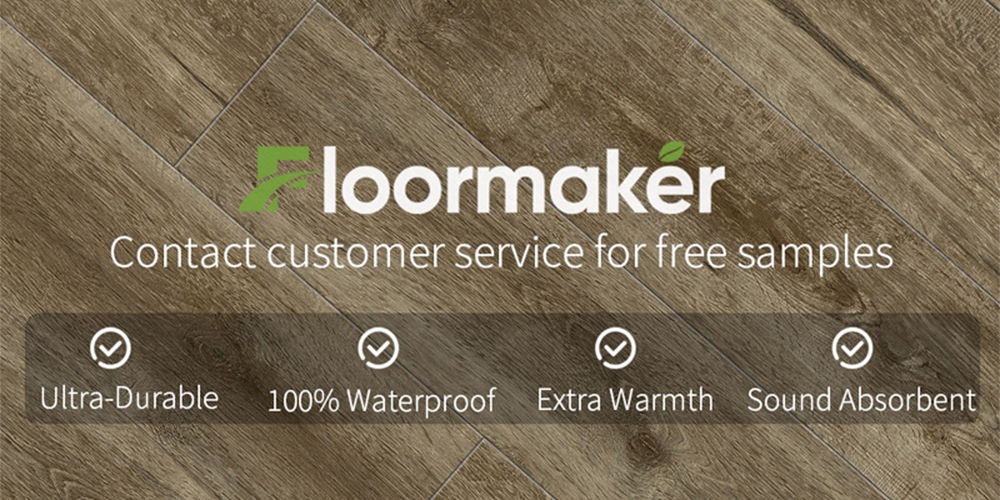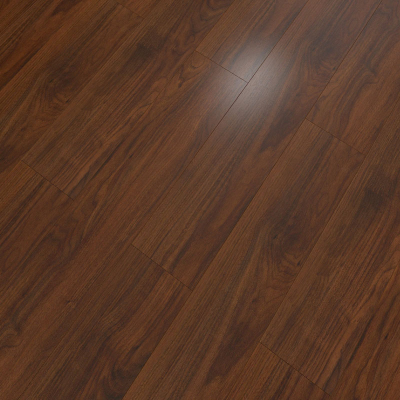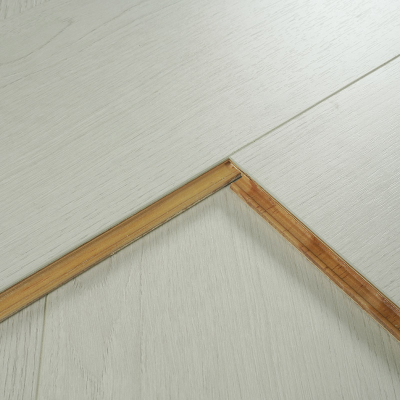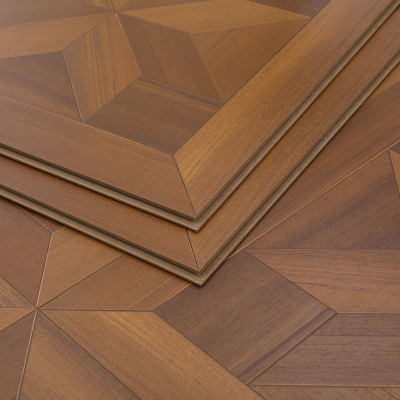Revealed: The Best Floors for Pets| FLOORMAKER
For pet owners, choosing the right flooring can be a daunting task. Between scratches, spills, and daily wear and tear, durability and ease of maintenance are non-negotiable. Enter laminate flooring—a versatile solution gaining traction among pet households. Leading the charge is Floormaker, a brand renowned for its innovative, pet-resistant designs that combine style and practicality.
Why Laminate Flooring is the Best Flooring for Pets
Unmatched Durability:
Laminate flooring’s multi-layer construction, including a scratch-resistant top layer, stands up to claws, toys, and heavy foot traffic. Unlike hardwood or carpet, Floormaker’s laminate planks are engineered to resist dents and fading, ensuring long-term aesthetics.
Water & Stain Resistance:
Floormaker’s laminate flooring features a moisture-resistant core and sealed seams, preventing liquid penetration—a game-changer for pet spills or muddy paws.
Effortless Cleaning:
Pet hair and debris? No problem. A quick sweep or mop keeps Floormaker’s surfaces pristine, thanks to its smooth, non-porous texture that repels dirt and odors.
Pet-Safe Design:
Floormaker prioritizes safety with slip-resistant finishes and low-VOC materials, ensuring a healthier environment for both pets and families.
Floormaker: Innovation Meets Pet-Friendly Excellence
As a pioneer in the laminate flooring industry, Floormaker integrates cutting-edge technology with pet-centric features:
ScratchGuard® Technology: A proprietary coating that withstands even the most active pets.
Eco-Certified Options: Sustainably sourced materials certified by FloorScore® and GREENGUARD.
15-Year Residential Warranty: A testament to confidence in product longevity.
“Pets are family, and their comfort shouldn’t compromise your home’s style,” says SHENXU, Floormaker’s CEO. “Our laminate collections offer the perfect blend of resilience and elegance for modern pet owners.”
Choosing the right flooring for pet-friendly homes is more than a design decision—it’s an engineering challenge. From scratch resistance to stain repellency and slip safety, pet owners must consider multiple variables. In this in-depth guide, we reveal the best floors for pets based on durability, safety, material standards, and long-term maintenance.
Whether you're a dog-lover, cat-parent, or exotic pet owner, this article will help you make an informed choice backed by data, material science, and international standards.
🐾 Key Flooring Requirements for Pet Owners
Before evaluating specific flooring types, let’s define the performance criteria that matter most in homes with pets:
| Requirement | Importance for Pets |
|---|---|
| Scratch Resistance | Dogs and cats may leave claw marks, especially during play or running. |
| Water/Stain Resistance | Accidents, drool, and spilled water bowls demand surfaces that don’t absorb liquids. |
| Slip Resistance | Floors should provide grip to prevent injury, especially in senior pets. |
| Noise Reduction | Some floors amplify the sound of claws—important in multi-level homes. |
| Easy Cleaning | Regular vacuuming, mopping, or disinfecting must be effortless. |
| VOC Emission Safety | Materials should be free from formaldehyde and meet indoor air quality standards. |
🏆 Top 5 Flooring Types for Pet-Friendly Homes (2025)
1. Luxury Vinyl Plank (LVP/SPC Flooring)
Best For: Pet owners wanting affordable, waterproof, scratch-resistant flooring.
Material: Polyvinyl chloride (PVC) core; SPC includes a stone-plastic composite layer.
Benefits:
100% waterproof
Scratch-resistant wear layer
Quiet underfoot
Certifications:
FloorScore® for indoor air quality
ISO 10582 (Resilient flooring standards)
Example Spec: 5mm SPC flooring with IXPE underlayment, AC4 wear resistance
2. Tile Flooring (Porcelain or Ceramic)
Best For: Homes with large dogs or high traffic.
Material: Kiln-fired clay, water absorption <0.5%
Benefits:
Extremely durable
Easy to clean
Won’t harbor allergens
Considerations:
Cold and hard underfoot; may need pet mats
Slippery when wet (choose textured/PEI IV or V tiles)
3. Engineered Hardwood (Pet-Optimized Finishes)
Best For: Homeowners wanting a natural wood look with moderate pet use.
Material: Plywood core with hardwood veneer; aluminum oxide topcoat
Benefits:
Pre-finished layers improve durability
Less warping vs. solid hardwood
Certifications:
FSC Certified wood
CARB Phase II compliant (low formaldehyde)
⚠️ Not fully scratch-proof — consider applying a polyurethane sealant every few years.
4. Laminate Flooring (AC4+ Rating)
Best For: Budget-conscious homes with small to medium pets.
Material: HDF core + melamine resin wear layer
Benefits:
High resistance to wear (check AC rating)
Anti-scratch surface
Drawbacks:
Not waterproof unless explicitly treated
Edges may swell if urine seeps into joints
5. Cork Flooring
Best For: Pet owners prioritizing sustainability and softness.
Material: Renewable cork bark
Benefits:
Quiet and cushioned
Naturally antimicrobial
Low VOC emission
Standards:
Greenguard Gold Certified
Meets EN 14041 for slip resistance
🧪 Engineering Perspective: Surface Hardness vs. Pet Comfort
The Janka hardness scale is used for wood and similar materials. While higher hardness resists scratching, it may lead to pet joint stress. Flooring that balances resilience and give (like SPC or cork) is often better for long-term joint health in dogs.
| Material | Janka Rating (lbf) | Pet-Friendly Level |
|---|---|---|
| Bamboo Strand | 3000 | Moderate |
| Oak | 1290 | Good |
| Vinyl SPC | N/A (composite) | Excellent |
| Porcelain Tile | N/A (ceramic) | Excellent |
🛡️ Health & Safety Standards to Look For
Ensure your flooring complies with:
EN ISO 16000-9 (Indoor air emissions)
ASTM D4060 (Abrasion resistance)
Slip resistance: ASTM C1028 or DIN 51130
Formaldehyde Emissions: ≤0.05 ppm (CARB/E1 standards)
Choose materials tested under REACH and RoHS for chemical safety, especially where pets may lick surfaces.
🧼 Maintenance Tips for Pet-Friendly Floors
Use micro-fiber mops to trap fur and dander.
Place entry mats to reduce outdoor debris.
Clip pet nails monthly to minimize scratches.
Seal joints on laminate or engineered wood.
Clean spills quickly—especially accidents.
Pro Tip: Use enzymatic pet cleaners to neutralize urine odors and prevent remarking.
🧩 Frequently Asked Questions
Q1: Is carpet good for pets?
While soft and noise-absorbing, carpets trap fur, allergens, and odors—making them less ideal for pets.
Q2: Can pets damage SPC flooring?
SPC (stone plastic composite) has high scratch resistance and is water-impermeable, making it one of the best options.
Q3: What flooring helps with pet allergies?
Non-porous surfaces like tile, vinyl, and sealed cork resist allergen buildup and are easy to sanitize.
Q4: Is underfloor heating safe with pet-friendly floors?
Yes, but ensure the material (e.g., LVP, engineered wood) is rated for radiant systems. Avoid high heat with cork.
📌 Summary Table: Best Flooring Types for Pets
| Flooring Type | Durability | Water Resistance | Scratch Resistance | Comfort |
|---|---|---|---|---|
| SPC Vinyl Plank | ★★★★☆ | ★★★★★ | ★★★★☆ | ★★★★☆ |
| Porcelain/Ceramic Tile | ★★★★★ | ★★★★★ | ★★★★★ | ★★☆☆☆ |
| Engineered Hardwood | ★★★☆☆ | ★★★☆☆ | ★★★☆☆ | ★★★★☆ |
| Laminate (AC4+) | ★★★★☆ | ★★☆☆☆ | ★★★★☆ | ★★★☆☆ |
| Cork Flooring | ★★★☆☆ | ★★★☆☆ | ★★☆☆☆ | ★★★★★ |
✅ Final Recommendation
If you’re seeking the best flooring for a home with pets, SPC luxury vinyl plank or porcelain tile offer the strongest mix of durability, water resistance, and ease of cleaning. Cork offers comfort and sustainability, while engineered hardwood gives aesthetic appeal with moderate resilience.
📣 Call to Action
Looking to upgrade your home with pet-optimized flooring solutions?
📩 Contact this site today for expert consultation, free samples, and access to globally certified flooring that’s engineered for both you and your furry companions.

